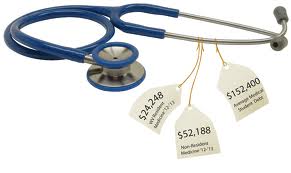Prospective medical school applicants often ask me whether a certain college major will curry favor with admission committees. I advise students to choose a major based on their genuine interest. You don’t have to major in the sciences to be prepared for medical school or to stand out in the application process.
Having advised thousands of medical school applicants, I have seen non-science majors achieve great success. Medical schools value applicants who have studied the humanities, in particular. They bring an important perspective to patient care since they have encountered the human condition in their reading of literature.
An article attests to this by describing the number of doctors who were English majors. It also points out that non-science majors demonstrate that they are able to juggle this with the demands of completing the science prerequisites for medical school along with extracurricular activities. They show that they can multitask, which is obviously important for any medical student and future physician. These applicants also add diversity to a medical school class.
Recent data from the Association of American Medical Colleges shows the following acceptance rates for applicants who majored in the following fields:
47% humanities
46% physical sciences
44% math and statistics
40% biology and social science majors
36% specialized health sciences (kinesiology, etc.)
While the raw numbers show that the vast majority of applicants major in the biological sciences, the percentage of accepted applicants is highest for those who majored in the humanities.
Follow what you love. If you genuinely love the sciences, major in a science field. If you have a passion for literature, history, music or art, study it in college.
–Liza Thompson, Expert Medical School Admissions Consultant
Originally posted in 2017 and updated in 2019.




